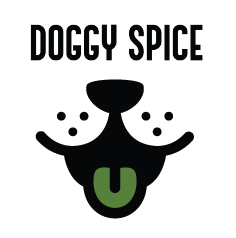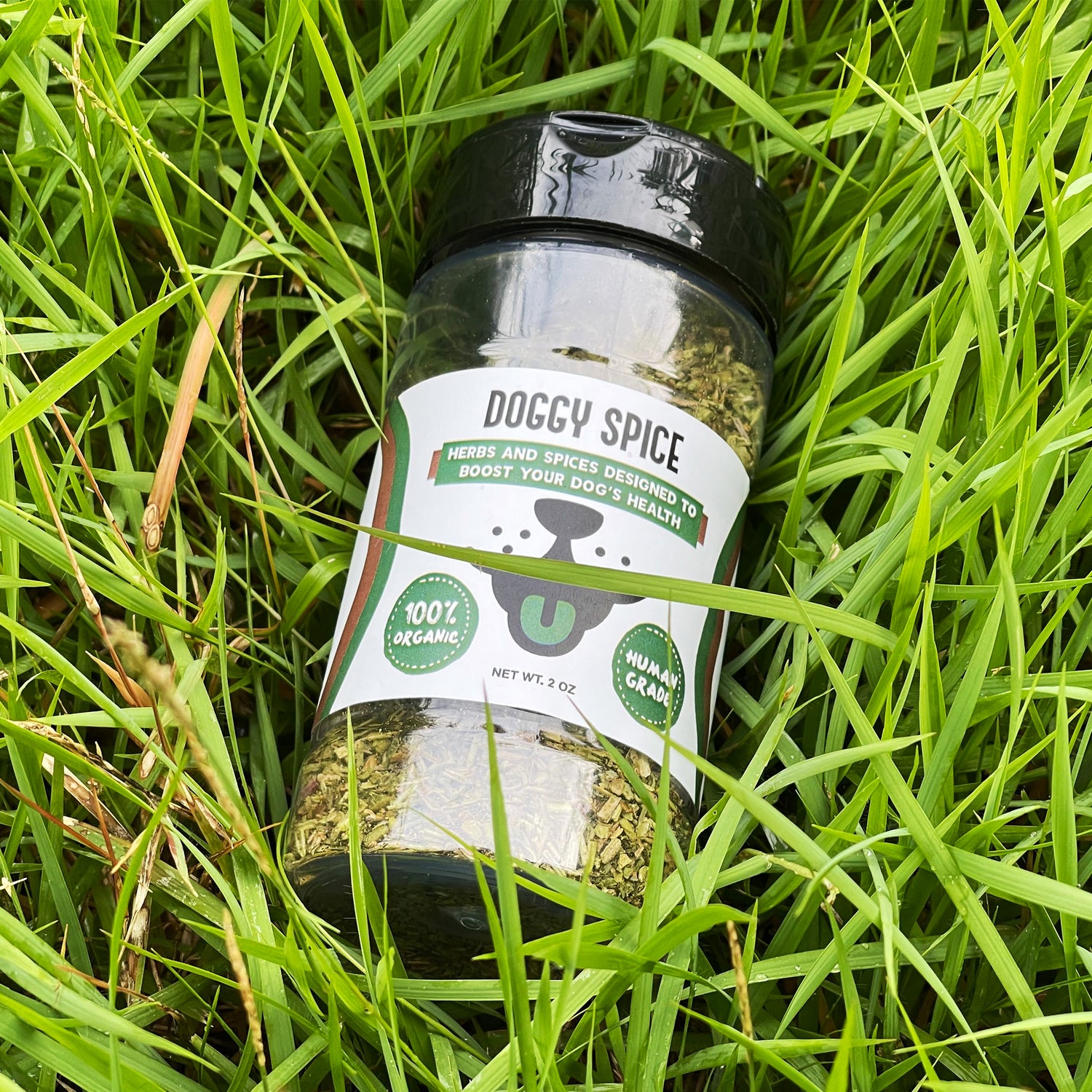
Is Dill Safe for Dogs? Find Out If Dogs Can Have Dill
Share
Introduction
For dog owners interested in enhancing their pet’s diet with natural, healthy ingredients, the question arises: is dill safe for dogs? Dill, a flavorful herb often used in cooking, has a history of medicinal benefits for humans, but can these benefits extend to our canine companions? 🍃
In this article, we’ll explore the benefits of dill for dogs, how to safely incorporate it into their diet, and address common questions surrounding this aromatic herb. We’ll also outline other dog-safe herbs and spices to keep your dog healthy year-round. 🌿🐶
Can Dogs Safely Eat Dill? 🐶
Yes, dill is generally safe for dogs to eat in small amounts. Dill is non-toxic to dogs and contains various nutrients, such as vitamins A and C, calcium, iron, and flavonoids, which may benefit a dog’s overall health. However, as with any addition to a dog’s diet, moderation is key.
Benefits of Dill for Dogs:
✅ Rich in Antioxidants: Helps reduce inflammation and combat oxidative stress.
✅ Digestive Aid: May alleviate mild stomach discomfort or gas.
✅ Breath Freshener: Known for its antibacterial properties that may help freshen your dog's breath.
Health Benefits of Dill for Dogs 🐾
Dill offers several health benefits when given appropriately. Here are some of the primary advantages:
-
Digestive Support 💚
Dill has been traditionally used as a remedy for digestion issues. The herb’s natural oils can help soothe the gastrointestinal tract, making it helpful for dogs with occasional upset stomach or mild gas. -
Rich in Antioxidants 🐾
Antioxidants in dill, such as flavonoids, help reduce inflammation and combat cellular damage caused by oxidative stress. For older dogs, antioxidants are particularly beneficial for promoting overall wellness and supporting cognitive health. -
Antibacterial Properties 🦴
Dill has natural antibacterial properties, which can help freshen a dog’s breath and potentially support oral health. Including a small amount in your dog's food may offer a natural alternative to artificial breath fresheners.
How to Feed Dill to Dogs
To safely add dill to your dog's diet, start with a small amount and observe any reactions. Here are some ways to offer dill to your dog:
➡️ Fresh Leaves: Finely chop fresh dill leaves and sprinkle a pinch over your dog’s food.
➡️ Dill Powder: Use a pinch of dried dill, mixing it into their meals.
➡️ Dill-Infused Water: Steep dill leaves in water, then let the water cool before offering it as a mild infusion.
💡 Tip: Avoid giving dill pickles to dogs, as the added salt and vinegar can upset their stomachs.
Dill Nutrition Facts for Dogs 🐕
|
Nutrient |
Benefit |
|
Vitamin A |
Supports vision and immune health |
|
Vitamin C |
Antioxidant for immune support |
|
Calcium |
Supports bone health |
|
Iron |
Aids in oxygen transport in blood |
|
Flavonoids |
Provides anti-inflammatory effects |
“Dill contains essential oils that have antispasmodic properties, which may help alleviate mild gastrointestinal distress in dogs, much like it does in humans.” — [Source: Veterinary Herbal Medicine Institute]

How to Incorporate Dill Into Your Dog’s Diet
While dill can be a healthy addition to your dog's diet, it’s essential to use it thoughtfully. Here are some creative ways to incorporate this aromatic herb into your dog’s meals:
-
Sprinkle Fresh Dill on Food
Fresh dill is easy to use and can be sprinkled on your dog’s regular meals. You can finely chop the dill and mix it with wet food or kibble. Not only will this add flavor, but it will also provide nutritional benefits. Dill pairs well with meat-based dishes, such as chicken or beef, making it an ideal herb to enhance protein-rich meals.
-
Add Dill to Homemade Dog Treats
If you're into homemade dog treats, try adding a little dill to your recipes. Dill works well in baked dog treats, especially when combined with dog-safe ingredients like pumpkin, chicken, or sweet potato. Its refreshing taste is sure to be a hit with your pup.
-
Dill-Infused Water or Broth
Another way to serve dill to your dog is by steeping fresh dill in water or low-sodium chicken broth. Let the herb infuse for a few hours, then strain the liquid and serve it to your dog. This is a refreshing way to keep your dog hydrated while offering some of the health benefits of dill.
-
Dill as a Garnish
For dogs who enjoy variety in their meals, consider using dill as a garnish. Simply chop the fresh herb and sprinkle it on top of their food. You can pair it with other dog-friendly ingredients like carrots, zucchini, or rice for a balanced meal.
Can Dill Be Used for Dogs with Specific Health Conditions?
Certain health conditions in dogs may benefit from the addition of dill to their diet. Let's take a look at some scenarios where dill can be helpful:
➡️ Dogs with Digestive Issues
If your dog suffers from digestive upset, occasional mild diarrhea, or bloating, dill might provide some relief. Dill contains compounds that help soothe the stomach, reduce indigestion, and alleviate gas. In cases of mild discomfort, a pinch of dill mixed into food or given as a treat could help calm your dog’s stomach.
➡️ Dogs with Bad Breath
Dill’s antibacterial properties make it a great natural option for freshening your dog’s breath. If your dog suffers from occasional bad breath, you can offer small amounts of dill after meals. This herb helps fight the bacteria responsible for bad odors while also promoting oral health.
➡️ Senior Dogs
Senior dogs are often more susceptible to digestive issues and may suffer from reduced immunity. Dill’s antioxidant properties help fight free radicals that can contribute to aging and inflammation. Adding dill to your senior dog’s diet can provide nutritional benefits that support their overall health and longevity.
Monitoring Your Dog After Introducing Dill
While dill is generally safe for dogs, it's always important to monitor your pet closely when introducing any new food into their diet. Here are some things to keep in mind:
❗️Observe for Allergic Reactions
As with any new food, your dog may have an allergic reaction to dill, although this is rare. Watch for signs such as:
- excessive itching
- hives
- swelling
- gastrointestinal upset
If any of these occur, stop feeding dill immediately and consult your vet.
❗️Start with Small Quantities
When introducing dill to your dog, begin with a small quantity to see how they react. If they seem to tolerate it well, you can gradually increase the amount over time. However, avoid overfeeding dill, as large amounts can cause digestive discomfort or bloating.
❗️Consult Your Veterinarian
If your dog has a pre-existing medical condition, such as a kidney or liver problem, always check with your veterinarian before adding dill or any new herbs to their diet. Your vet can help you determine the right amount and frequency based on your dog’s specific health needs.
Can Dill Help With Weight Management in Dogs?
Obesity is a growing concern among pets, with many dogs struggling to maintain a healthy weight due to poor diet and lack of exercise. Dill can play a small but supportive role in weight management.
🐾 Appetite Control
Dill is known for its mild appetite-suppressing properties. If you have a dog who overeats or begs for food constantly, a small amount of dill added to their meals may help curb their appetite. Dill may have a mild calming effect on the digestive system, which could help your dog feel fuller and more satisfied after eating.
🥦 Low-Calorie Addition
Adding dill to your dog’s meals is a low-calorie way to increase flavor and nutritional value without adding unnecessary fats or sugars. Dill is an excellent choice for dogs on a weight-loss plan since it won't contribute to calorie overload.
Frequently Asked Questions (FAQ) About Dill for Dogs 🧐
Is dill toxic to dogs?
No, dill is not toxic to dogs when given in small amounts. However, large quantities may cause digestive upset.
Can dill help with my dog's bad breath?
Yes, dill’s natural antibacterial properties may help reduce bacteria that contribute to bad breath.
How much dill can I safely give to my dog?
Start with a small pinch for small dogs or up to half a teaspoon for larger dogs. Always introduce new foods gradually.
Can I give my dog dill pickles?
No, dill pickles are not recommended due to high salt content and added vinegar, which can upset a dog’s stomach.
Is dill good for a dog’s digestion?
Yes, dill has been traditionally used to support digestion and may help with mild gas or upset stomach.
Other Dog-Safe Herbs and Spices to Keep Your Dog Healthy All Year 🌿
Adding a variety of dog-safe herbs and spices to your dog’s diet can provide numerous health benefits. Here’s a list of safe options:
- Cleavers (Galium Aparine) - Supports lymphatic health
- Rosemary- Antioxidant-rich
- Dandelion Greens - Provides vitamins A, C, and K
- Basil - Calming properties
- Peppermint - Aids digestion
- Celery Seeds - Anti-inflammatory benefits
- Oregano - Immune-supporting
- Parsley - Supports fresh breath
- Thyme - Immune booster
- Ginger - Soothes stomachs
- Tumeric - Anti-inflammatory properties
These herbs and spices can easily be incorporated into your dog’s meals with Doggy Spice to promote overall well-being. 🌱
Potential Risks and Precautions with Dill
Although dill is safe for dogs in small amounts, it’s important to exercise caution:
Dill Recipes for Dogs
Dill & Chicken Treats Recipe
Here’s a simple dog-friendly treat recipe incorporating dill:
Ingredients:
- 1 cup shredded cooked chicken
- 1 egg
- 1/2 teaspoon chopped fresh dill
- 1/4 cup oat flour
Instructions:
- Preheat the oven to 350°F (175°C).
- In a bowl, mix all ingredients until combined.
- Shape into small bite-sized treats and place on a baking sheet.
- Bake for 15 minutes, or until golden brown.
- Let cool and serve as an occasional treat.
❗️Note: Treats should be fed in moderation and as part of a balanced diet.
Conclusion
Dill can be a beneficial addition to your dog's diet when given in small amounts. From supporting digestion to providing antioxidant benefits, this aromatic herb offers various health advantages for dogs. Always consult with a veterinarian before introducing new foods, especially if your dog has specific dietary needs or health concerns.
References
• American Kennel Club. (n.d.). Herbs and Spices for Dogs. Retrieved from https://www.akc.org/
• Veterinary Herbal Medicine Institute. (n.d.). Dill and Its Benefits. Retrieved from https://www.vhmi.org/
• National Center for Complementary and Integrative Health. (2023). Health Properties of Dill. Retrieved from https://nccih.nih.gov/
• Veterinary Health Center. (n.d.). Safe Herbs for Dogs. Retrieved from https://www.vet.k-state.edu

